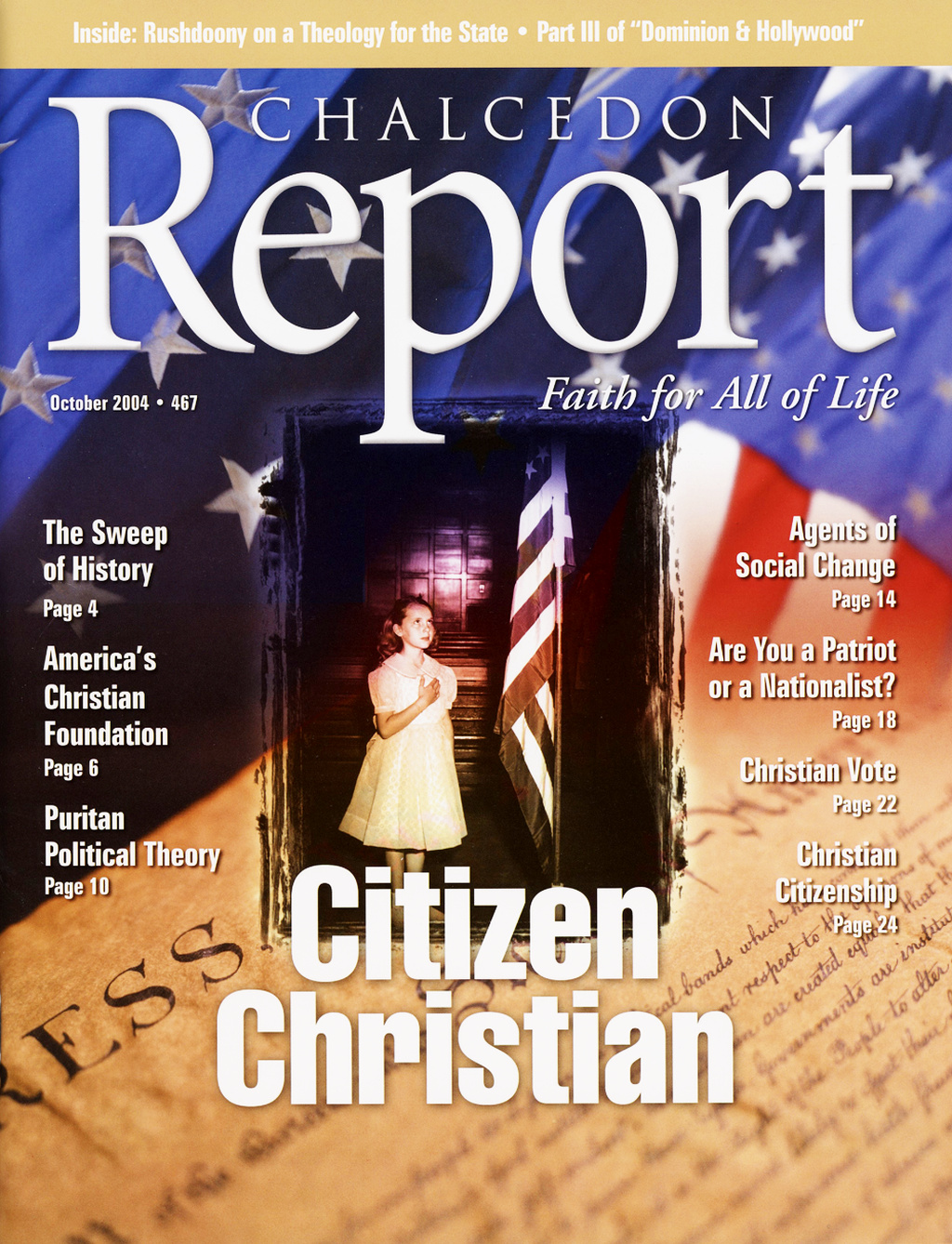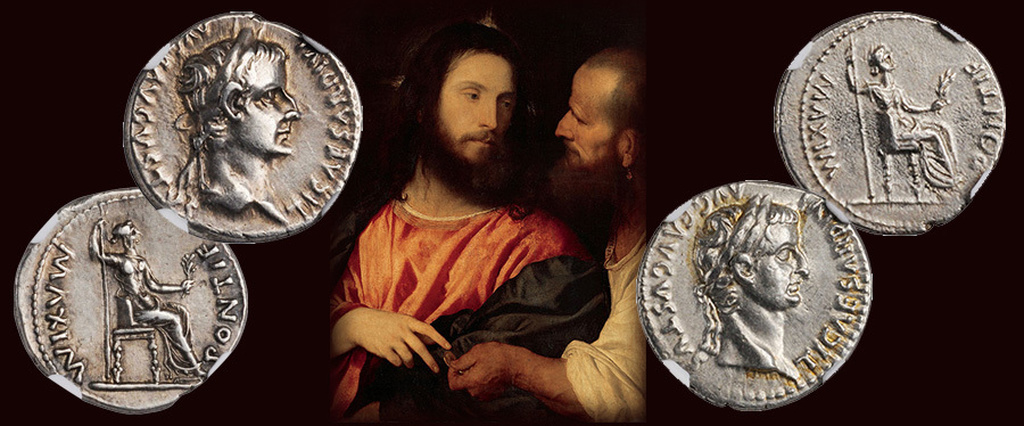
Magazine Issue
Citizen Christian
A Christian's earthly citizenship and civil responsibilities are fixed within the kingdom of God. Thus all earthly affairs must be handled on God’s terms.
October 2004 Articles:
The Sweep of History

- Mark R. Rushdoony
America's Christian Foundations
- Kenneth L. Gentry, Jr., Th.D.

Render Unto Caesar
- Greg Uttinger

Puritan Political Theory: Covenants, Lesser Magistrates, and American Liberty
- Roger Schultz
Citizen Christians!
- Jim West
Agents of Social Change
- Joe Morecraft, III
Are You a Patriot or a Nationalist?
- Eugene Clingman
Patriotism
- Rick Williams
Dominion and Hollywood, Part III
- Brian Godawa
Christian Vote
- Warren Kelley
Christian Citizenship: A Gift from God

- Lee Duigon
Christian Metaphysics and the Creator-Creature Distinction: Part I
- Anthony Rogers